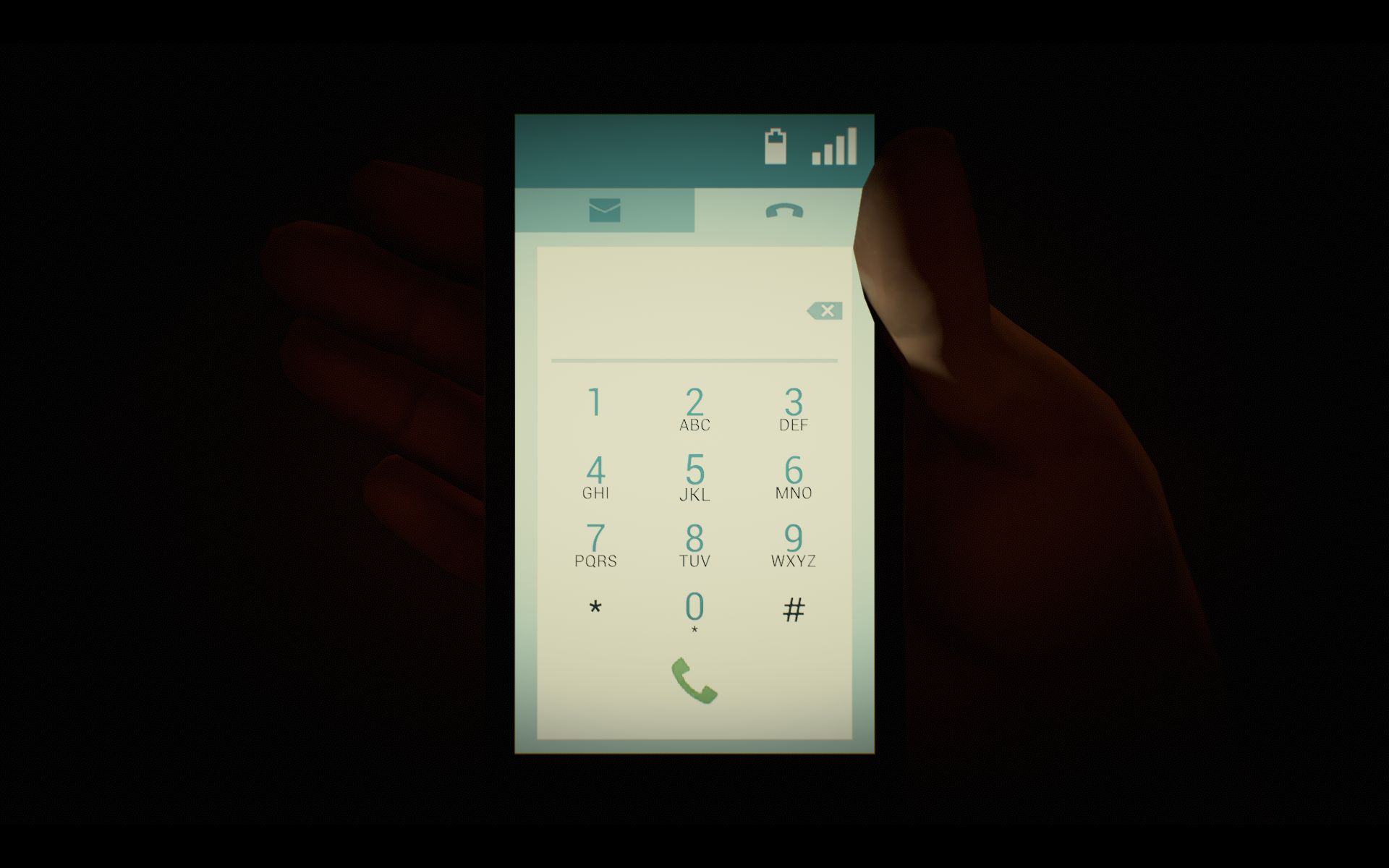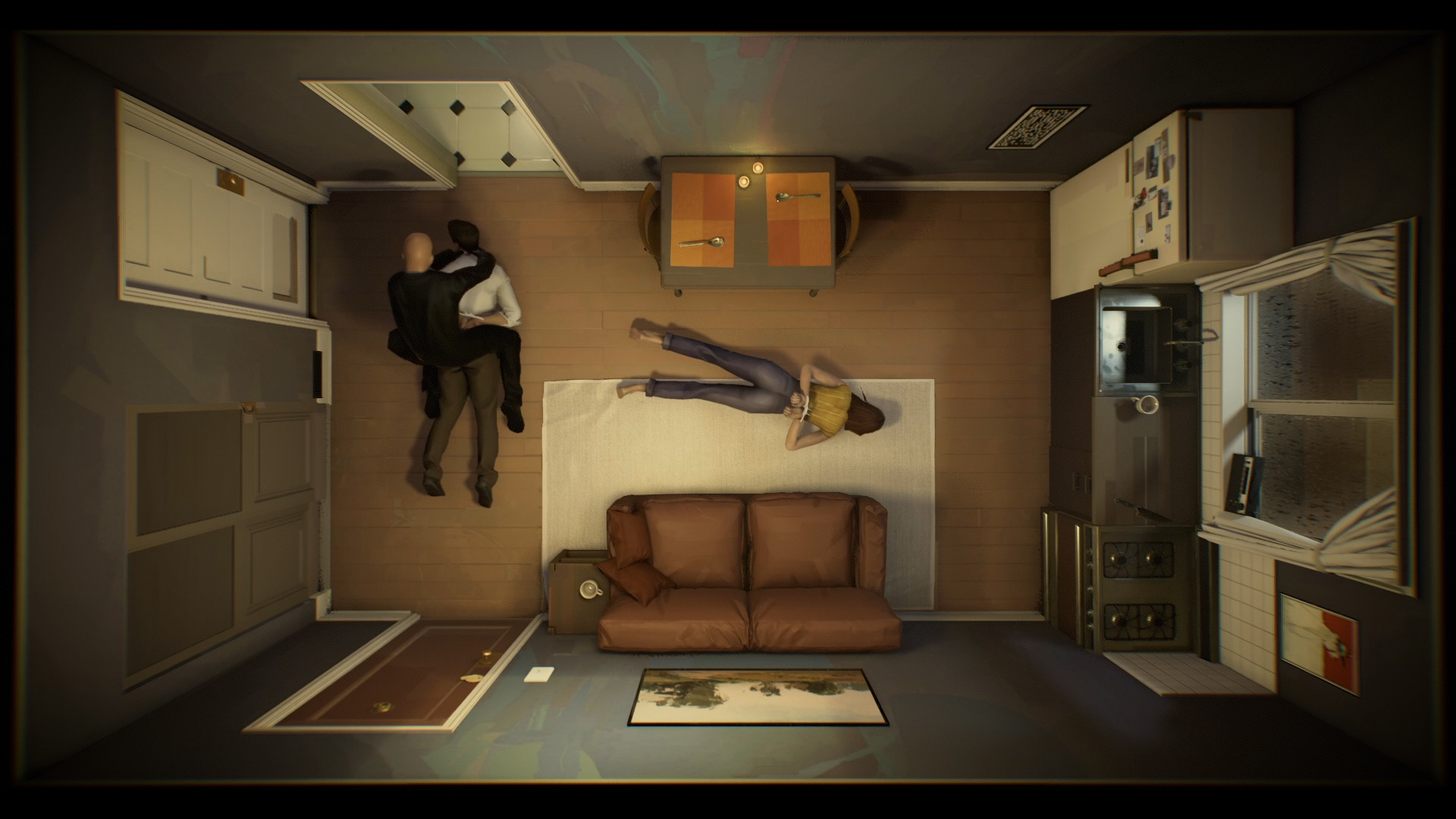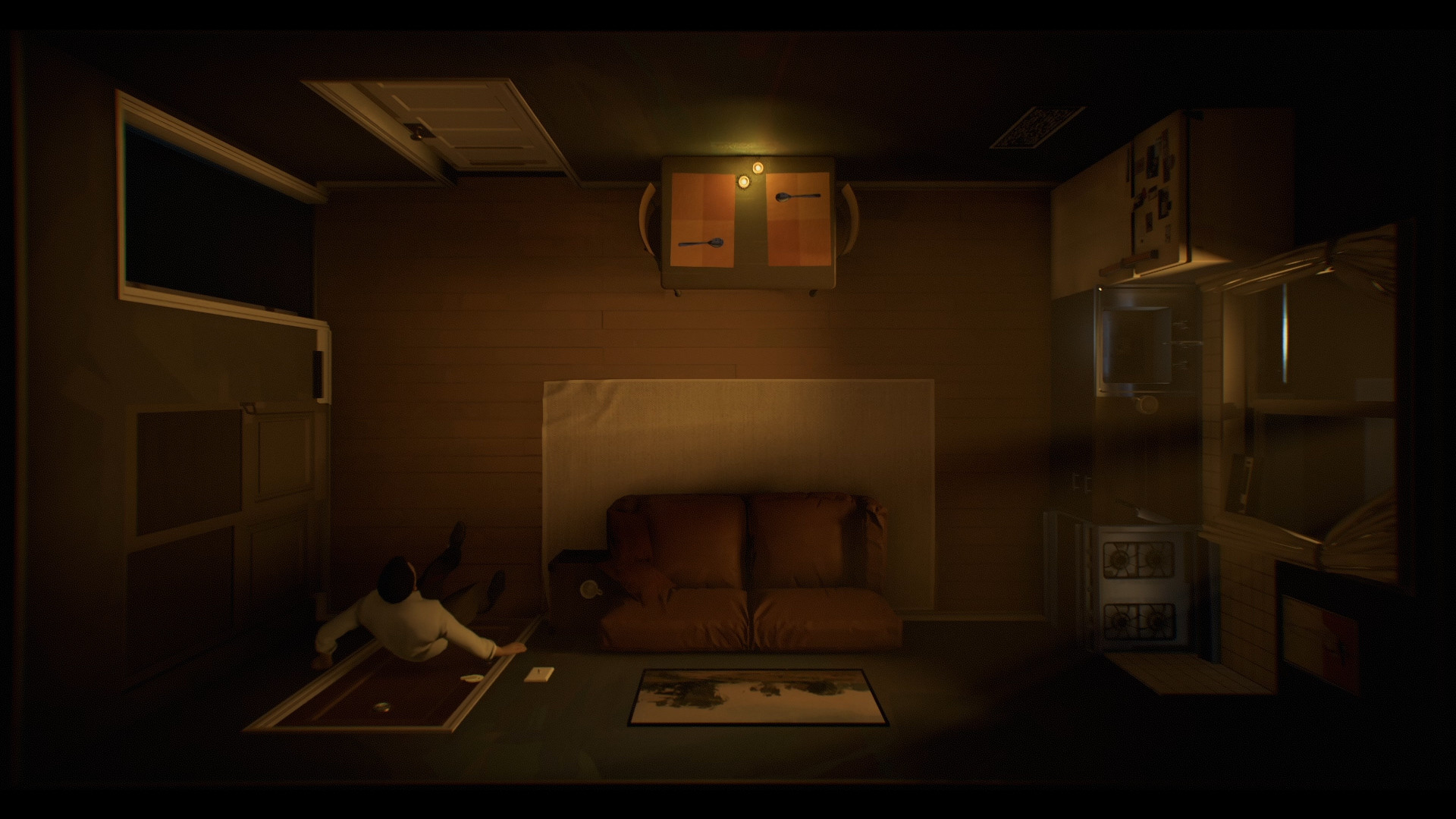Twelve Minutes is overly ambitious and messy, but ultimately well worth your time
Ever since checking out writer-director Luis Antonio’s Twelve Minutes behind-closed-doors at E3 2019, I’ve been incredibly eager to play the final product.
That excitement has only increased over time as more trailers were shown off, the ever-dependable Annapurna Interactive came on to back the game and big-name stars James McAvoy, Daisy Ridley and Willem Dafoe joined the cast.
For the uninitiated, Twelve Minutes follows a man caught in a time loop who has 12 minutes — which play out in real-time — to figure out why a deadly intruder known as “The Cop” is after his wife. Over the course of each loop, he uncovers new information to use in subsequent runs to help solve the mystery.
Such a Hitchcock and Kubrick-inspired psychological thriller concept translates perfectly to a game, and, thankfully, Twelve Minutes mostly delivers on it.
“While the execution feels spotty at times, particularly in the story and themes it tries to grapple with, I can’t deny that I thoroughly enjoyed most of my time playing it.”
Much of Twelve Minutes‘ success boils down to the smart limitations Antonio has imposed on you. The entirety of the game takes place through a bird’s-eye view of the small apartment of the married couple, simply referred to here as “The Husband” and “The Wife.” You’ll quickly learn, however, that any attempt to leave your humble abode will restart the loop. Falling unconscious or, in some cases, even dying, will also cause you to start over.
As a result, this means you typically have a fixed set of objects and characters that you can interact with. It’s a brilliant way of keeping the game tight and focused while challenging you to recontextualize your surroundings over time. A spoon that’s initially introduced as a mere utensil for your romantic dinner might later help you open a hard-to-notice vent that contains an invaluable hidden item. Likewise, the cell phone you might use to call 9-1-1 on could eventually dial an important contact once you find out their number. The apartment is your toolbox, and it’s great fun to work out how and when to use each of its components.
And because said toolbox is relatively limited, Antonio has paid an impressive amount of attention to detail in all of the different ways you might choose to interact with them. Rarely was there a time where I thought, ‘oh, what if I did this?’ and it wasn’t accounted for, which normally made experimentation feel rewarding. This can manifest in such small ways as The Wife getting upset if you start dinner without her, to more impactful outcomes like alternate endings if you reveal certain findings to particular characters at specific moments.

Having said that, there are times when Twelve Minutes can feel too restrictive. Without spoiling how you get to this point, one of the key developments in your investigation is when you manage to question The Cop, who normally just incapacitates you and causes the loop to restart. There’s a highly specific means through which you can get him to talk rather than attack, and it feels remarkably satisfying once you figure it out.
The problem, though, is that this novelty wears off when you have to go through those exact same motions to revisit that point should you bungle the interrogation or even run of time. A puzzle loses its luster when you’re effectively forced to “solve” it several times in a row. While the game does allow you to skip through previously heard dialogue, it doesn’t make the act of standing there and mashing the ‘A’ button as everything plays out exactly the same way feel any less tedious. These instances aren’t too frequent throughout Twelve Minutes‘ six-odd hour campaign, but they’re quite frustrating when they do pop up.

Twelve Minutes also proves to be uneven in its narrative, although there’s admittedly much to like on this front. While their American accents are occasionally spotty, McAvoy and Ridley are overall excellent and convincing as this traumatized couple. Dafoe, meanwhile, is at once utterly threatening and, once you learn more about him, surprisingly three-dimensional and compelling. Likewise, the minimalist art style gives the game a pleasantly understated, almost painterly feel.
And for a good part of its run, the story did have me hooked. Learning more about The Cop’s connection to The Wife and her past successfully evoked the suspense of such mind-bending thrillers as Memento and Rear Window. But Twelve Minutes goes completely off the rails in a late twist that reframes the entire narrative in a decidedly repulsive light. Tackling particularly dark subject matter isn’t a problem in and of itself, and I see what Antonio was going for, but it’s not given nearly enough room to be explored in any meaningful way.

But ultimately, Twelve Minutes is, perhaps, the perfect example of that old adage about the journey mattering more than the destination. While the execution feels spotty at times, particularly in the story and themes it tries to grapple with, I can’t deny that I thoroughly enjoyed most of my time playing it. All told, there are many clever ideas here that are consistently used quite well. I just hope that Antonio or another creative team can build upon the strong foundation laid here and deliver a tighter experience in the future.
12 Minutes is now available on Xbox One, Xbox Series X/S (reviewed on Series X) and PC through Xbox Game Pass or for $30 CAD on Steam/$32 on Xbox.
Image credit: Annapurna Interactive
For all the latest Technology News Click Here
For the latest news and updates, follow us on Google News.
